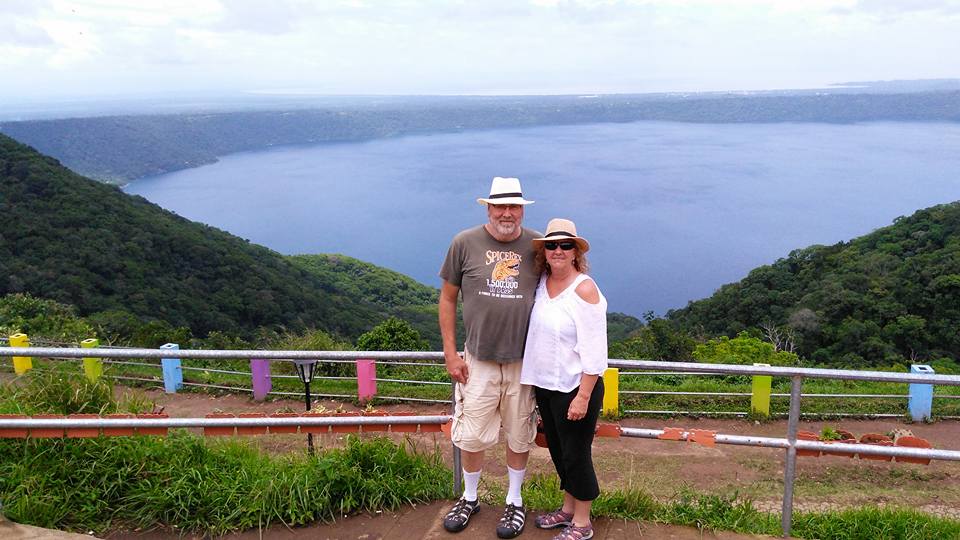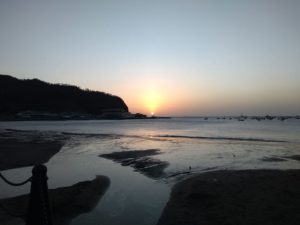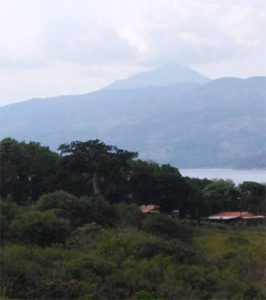 The question most everyone asks is “How much do I need to retire as an Expat?”. However I contend that you should ask yourself “How little do I need to retire as an Expat?”. The change in perspective makes a great difference in how you will approach the situation. Some people will not even get the difference in this perspective.
The question most everyone asks is “How much do I need to retire as an Expat?”. However I contend that you should ask yourself “How little do I need to retire as an Expat?”. The change in perspective makes a great difference in how you will approach the situation. Some people will not even get the difference in this perspective.
In the american society we are always pushed for more, more, more. The common refrain from retirement “experts” and friends and family that think they know the facts is that we must have a couple of million dollars saved up to retire. You will keep hearing how if you do not have 3 million saved up you will never be able to pay all your retirement needs.
Using these numbers most all people would never be able to retire. As soon as you get that magic number saved up that they said you are going to need, the number will go up again. Using the conventional wisdom, many people have determined that they will need to work to 70 years old or beyond.
However what are your retirement needs? I would bet that if I asked most people what their retirement needs are, I would get a list with things on it like BMW M5, going out to dinner most nights and a 4,000 square foot house. None of those are needs, they are all wants.
Think about all the celebrities that are dead broke, despite making millions of dollars each year. Is this because they suddenly had a bunch of new needs that drained their money, or more likely their list of wants grew as fast as their income? Have you ever gotten a raise or promotion and thought how the extra money will be great, only to find in 6 months you are back to having nothing extra at the end of the month?
Now consider that their are people living on incomes as little as $10,000 a year up to $1 Million a year and more. The average US income is about $50,000 a year. This means that early retirement is just a matter of determining where on the income line you wish to be, what your real needs are and finding a way to meet them.
This is where many Expat destinations come in with the reduced cost of living. However, keep in mind that all the numbers you see thrown around on the Expat sites do not apply to you. For North Americans moving to another country the cost of living is going to vary from person to person based on their own needs and wants, just where you move to in any given country, how you shop, etc.
I have seen people that complain about the cost of food being 2 to 3 times more in Panama or Costa Rica. The followup questions usually reveal that they will only purchase import food stuff and go out to only the Upscale Gringo restaurants.
At the same time you can find plenty of people that are able to save considerable amounts of money on food because they eat like the locals do and avoid import items. In most Central American Countries the average wage is $8,000 to $10,000 a year for the locals. I am betting none of them go buy the food items imported from north america at Auto Mercado.
If you are expecting to move to Central America and live exactly like you have in the US, only at ¼ the cost, forget it. This is not America Lite.
Most of us have never really engaged in the exercise of creating a list of needs and wants. There are those of us, who choose to live on much less in return for the time that would otherwise be spent on accumulating money to pay for those wants. We spend our life-energy doing things that are more meaningful to us personally than spending money. We want more time and we are willing to spend less in order to work less. Consequently, we need less in retirement savings, actually quite a bit less. And thus we can accumulate it faster.



 The question most everyone asks is “How much do I need to retire as an Expat?”. However I contend that you should ask yourself “How little do I need to retire as an Expat?”. The change in perspective makes a great difference in how you will approach the situation. Some people will not even get the difference in this perspective.
The question most everyone asks is “How much do I need to retire as an Expat?”. However I contend that you should ask yourself “How little do I need to retire as an Expat?”. The change in perspective makes a great difference in how you will approach the situation. Some people will not even get the difference in this perspective. Everything that you have been lead to believe about saving money to retire and live well is a myth. The old paradigm is dead and gone. Retirement advisors tell you to buy the biggest house you can buy, invest everything you can, set a budget to live on the least possible expenses. All this so that when you are old and burnt up from working yourself to death, you can sit in a rocking chair and relax.
Everything that you have been lead to believe about saving money to retire and live well is a myth. The old paradigm is dead and gone. Retirement advisors tell you to buy the biggest house you can buy, invest everything you can, set a budget to live on the least possible expenses. All this so that when you are old and burnt up from working yourself to death, you can sit in a rocking chair and relax. Cutting your spending is one reason to move oversees for retirement. However you want to cut your spending ahead of time to maximize the amount of money you can take with you when you walk out the door on your new adventure.
Cutting your spending is one reason to move oversees for retirement. However you want to cut your spending ahead of time to maximize the amount of money you can take with you when you walk out the door on your new adventure. House sitting is how we are going to stretch out our retire money as far as we can. Although we have just started on our retirement and house sitting adventures we are already seeing a huge reduction in expenses.
House sitting is how we are going to stretch out our retire money as far as we can. Although we have just started on our retirement and house sitting adventures we are already seeing a huge reduction in expenses.